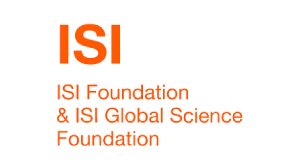ISI Foundation
Brief Biography of Organisation:
The ISI Foundation is a private research institution located in Turin, Italy. It is founded and supported by the Regional Government, the Province of Turin, the City of Turin, and by the two major National Bank Institutions – San Paolo and CRT Foundation. Its mission focuses on promoting scientific interchange and cooperation at the highest degree of quality both in terms of creativity and originality of research. It aims to represent a pole of high-level interdisciplinary training in the fields of Mathematics, Physics, Computer Science, and Life Sciences.
Role Organisation will play within project:
The ISI research units participating in this project have experience in theoretical and computational modeling of epidemics and has been active in developing, testing and deploying computational tools used in disease surveillance, epidemic crisis forecast and management. The team involved in this project gather an extensive range of scientific expertise in the areas of computational epidemiology, predictive modeling, epidemic forecasting, measurement of high-resolution contact networks, and in the development of computational frameworks and data integration and visualization tools.
The team has also extensive experience in engaging actors from the public sector (e.g. National institutes of Health)in many European countries as well as local communities and citizens. ISI Foundation has also designed several userfacing applications, InfluenzaNet (https://www.influenzanet.info) engaging around 50k participants. The ISI research unit participating in this project is also active in studies wherein AI technologies are applied to examine the human behavior on the Web, as well as to the analytics of medical IoT sensors and Electronic Health Records. The group has extensive expertise in visual presentation of complex data in intuitive and interactive visualizations such as GLEAMVIZ (http://www.gleamviz.org/) for epidemic simulation visualization, ZikaTracking (http://zikatracking.org/) for mapping Zika-related social media activity, and EMOTO Topic Explorer (http://www.datainterfaces.org/projects/emoto/) for temporal visualization of textual data.




